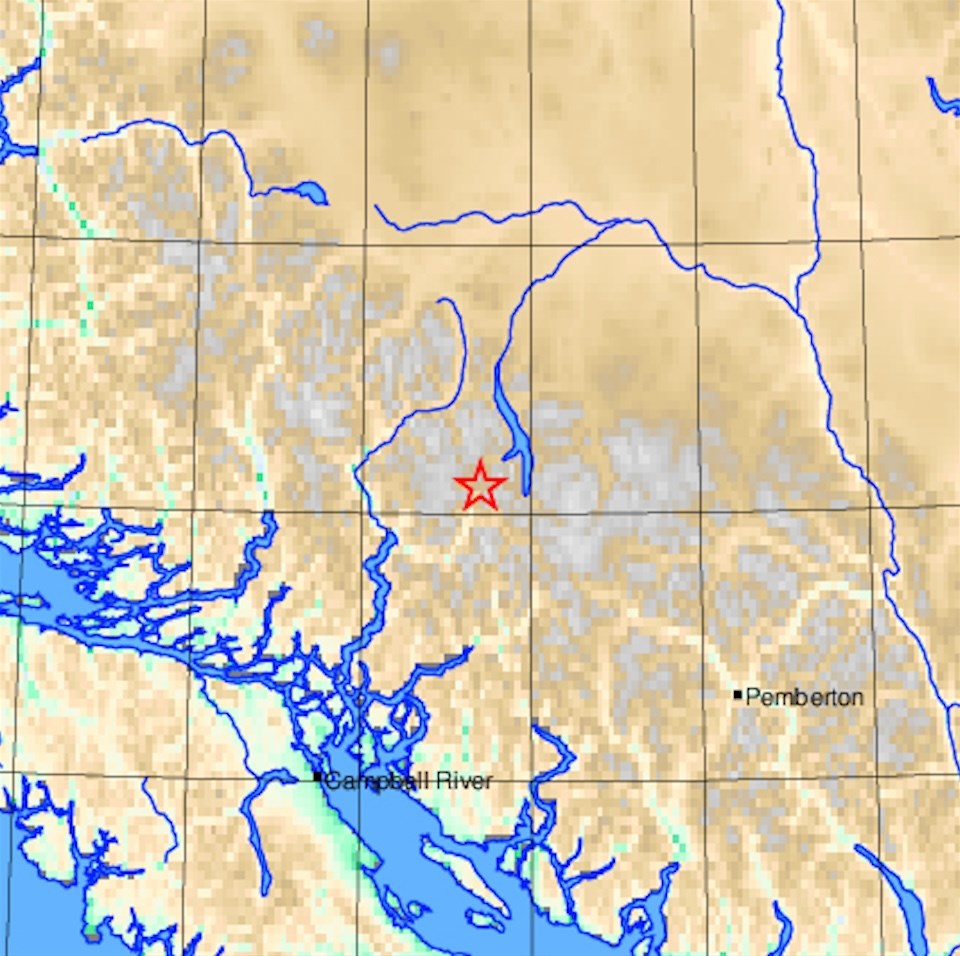Earthquakes Canada says a 4.9-magnitude earthquake was recorded Sunday afternoon and public reports poured in from hundreds of kilometres away from the event's epicentre — including Vancouver Island.
John Cassidy, a seismologist with Natural Resources Canada, said people over a "very wide region" of the province have reported feeling the earthquake, which hit just before 3:30 p.m.
Cassidy said the quake was felt by people across northern and central Vancouver Island, and as far away as Kelowna, more than 350 kilometres from the quake's epicentre
People in Campbell River, 137 km from the epicentre, reported buildings shaking at 3:23 p.m.
Earthquakes Canada initially reported the quake as being magnitude 4.5 on social media; that was revised to 4.9 on its website.
The U.S. Geological Survey, which measured the magnitude at 4.6, said the quake occurred at a depth of 14.5 kilometres.
No tsunami warning or advisory was issued.
Cassidy said the quake was centred in a remote region about 222 kilometres north-northwest of Vancouver. The area is near Ts’ilʔos Provincial Park.
Seismic events in that part of the province are "relatively rare," he said, with the last quake in the area around the same magnitude hitting in 2017. He said Sunday's quake wasn't a complete surprise since the province's coastal areas are an active earthquake zone, but the largest and most frequent earthquakes occur offshore.
"For this size of an earthquake, aftershocks are expected," Cassidy said in an interview. "In fact, we are recording a number of small aftershocks at this time. So the largest that we've seen so far is about a 2.6 magnitude."
Cassidy said aftershocks can happen hours or even days after such quakes, but tend to drop off in frequency "as time goes on."
He said Sunday's earthquake was minor in the "global scheme of things," but said it's important to be prepared for earthquakes nonetheless.
"It's really a good reminder that we are in an active earthquake zone," he said. "They don't happen very often, but when they do happen, it's important to know what to do, to drop, cover and hold on."
Cassidy said the province is getting an early-warning system for earthquakes that's been under development by Natural Resources Canada, similar to systems in place in California, Oregon, Washington, Japan and Mexico.
"It's been a very successful undertaking," he said. "It's the type of automated system that would let you know that an earthquake has occurred and that shaking is on its way, and so the farther away you are, the more time that you would have. So it's an opportunity, you know, in hospitals for surgeons to put down their scalpels."
B.C.’s “Get prepared for an earthquake” website’s slogan in the event of an earthquake is: “Drop, cover and hold on.”
If you feel the ground shaking, drop to hands and knees, cover head and neck with arm, shelter under a sturdy piece of furniture, hold on to your shelter while covering head and neck with arm until shaking stops.
If covering is not available, crawl to the nearest interior corner or wall, stay on the ground, continue to protect your head and neck.
— With a file from Michael John Lo, Times Colonist
This report by The Canadian Press was first published Dec. 17, 2023.



